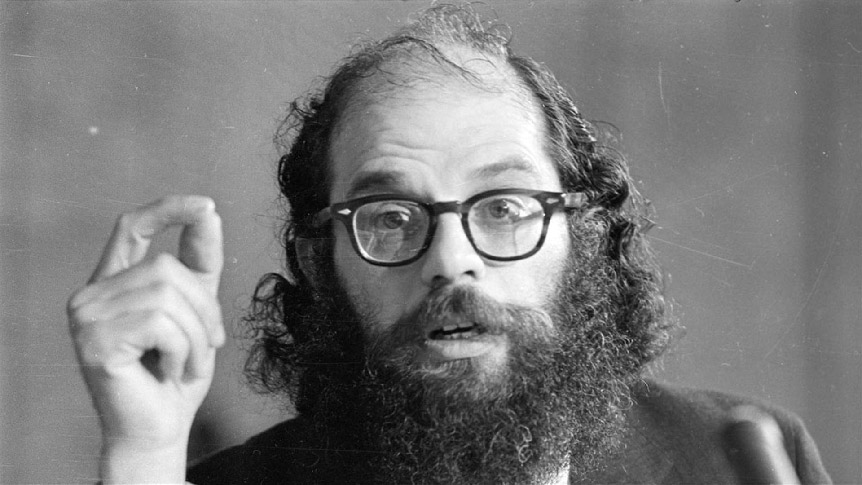Spoken Word per se is a ‘catch-all’ genre for anything using predominantly voice and diction, which does not fall into the other established categories of performance or recording.
The genre rose in popularity in the late 1980s and early 1990s, but before that, Punk held more of a door open for these ‘manic street preachers’ such as John Cooper Clarke whose Lancastrian accent has a musical quality to carry his acerbic witticisms.
He has also dabbled with musical backing for his poetry, with the recorded output adding musical acompaniment from the Invisible Girls, which featured Martin Hannett (d. 1991), Steve Hopkins, Pete Shelley (d. 2018), Bill Nelson, and Paul Burgess]. He still writes and performs to this day.
Wide-ranging
Just how wide ranging the spoken word genre is can be seen, if we shift from John Cooper Clarke to consider someone like Billy Bragg, who, with raised voices and ragged electric guitar on albums like “Life’s a riot with spy vs spy” (containing “A New England”) and “Talking with the taxman about poetry,” never sat easily with the epithet ‘singer’/rockstar and was probably better described as ‘musical poetry’.
Classic lines such as “how can you lie back and think of England when you don’t even know who is in the team…” and for “the girl with the hourglass figure, time runs out very fast”, blend wit and social commentary in one. Certainly Bragg’s concentration on his lyrical content suggests he should be included in these genres in the same way as Patti Smith.

Artists who produce Spoken Word Music don’t necessarily have to be musicians but the wide-ranging nature of this genre can be an avenue for performance poets, actors, and musicians to get together and create something unique. This embodies part of the genre’s freedom. It is ‘free in form’, like the verse it emits, and this is part of its unpredictable charm.
The 1990s – 2000s saw former beatnik poets, rappers, and actors, rockers, heavy and light, all exercise their poetic, spoken word skills, from Allen Ginsberg (d. 1997) to Lauryn Hill, William Shatner, Henry Rollins, Steve Martin, Tom Waits, inter alia…

Recent Gain in Popularity of Spoken Word Music
Spoken Word Music is an offshoot of the Spoken Word genre, which, as I have outlined, is a broad term to describe poetry intended for performance as opposed to be transcribed. Both genres have roots in oral traditions and performance.
Spoken Word Music can contain elements of rap, hip-hop, storytelling, theatre, and jazz, rock, blues, and folk music. Perhaps one key distinction is that when producing Spoken Word Music, it is vital that the words are not lost in the process of adding the musical backing.
Currently, Spoken Word Music is reaching renewed heights of sophistication and has even been preferred by artists such as Debbie Harry, whose memoir “Face It”, has been performed on a Spoken Word record by Debbie, Clem Burke, Chris Stein, Alannah Currie (ex-Thompson Twins), Gary Valentine, with original music by Chris Stein.
https://youtu.be/AsB-ntlec9s
Other contemporaries of theirs have followed suit: Iggy Pop, with “Leaves of Grass” and Patti Smith’s “Peradam”, a collaboration with the Soundwalk Collective, incorporating the “sounds of Himalayan winds, sacred mantras and water rippling in the holy river, Ganges…”
In a similar way to Patti Smith and Billy Bragg, Ani DiFranco fiinds her voice as a poetic lyricist with a political orientation. “Revolutionary Love” is the 22nd studio album from DiFranco, released on January 29, 2021 on her own Righteous Babe Records label.
DiFranco supports many social and political movements by performing benefit concerts, appearing on benefit albums, and speaking at rallies.
Through the Righteous Babe Foundation, DiFranco has backed grassroots cultural and political organizations supporting causes including abortion rights and LGBT visibility.
Spoken Word/Poetry on Television
The rise of Spoken Word can be witnessed on television with new poetry shows on Channel 4 and on Channel 5.
Benjamin Zephaniah, a true poetry performance pioneer, has a show on Sky Arts, ‘Life & Rhymes”, which includes poets, slam poets, spoken word artists and rappers.

Spoken Word/Poetry Podcasts
One example of podcasting matching the increased interest in Spoken Word is Frank Skinner’s poetry podcast on Absolute Radio. Now in its second series Frank waxes lyrical about the poetry that he loves.
Reasons why Spoken Word/Spoken Word Music is in the ascendant
In the world today, there is an apparent failure of informed political debate and an erosion of free speech, politically and culturally.
Spoken word is forming a new arena for discourse about society and offers an exchange of important information about grassroots issues.
Spoken Word is a very immediate artform. The writer is able to come right out with what they have to say regardless of metre, form or even, sometimes, breath control! It is also cost effective for performers today, since streaming has drastically reduced annuities paid to artists and inexorably changed the face of music publishing.
Conclusion
In conclusion, Spoken Word, Spoken Word Music, Wordcore and the various strands of poetry avalable to connect with, are winning audiences at the moment, and there is an increasing number of artists who are utlising these genres to get their message across.
That could be because these genres offer an effective archive of past times and cultural movements. The literary evocation and lilting quality can be effective and inspiring
and finally;
in these difficult times where avenues to access the arts in a live setting have been substantiallly reduced, these genres, as with most forms of artistic endeavour, can be accessed easily and lend themselves to online transmission.
Moreover these genres encourage dialogue and provide both mental stimulation and motivation during what are unquestionably difficult times.

